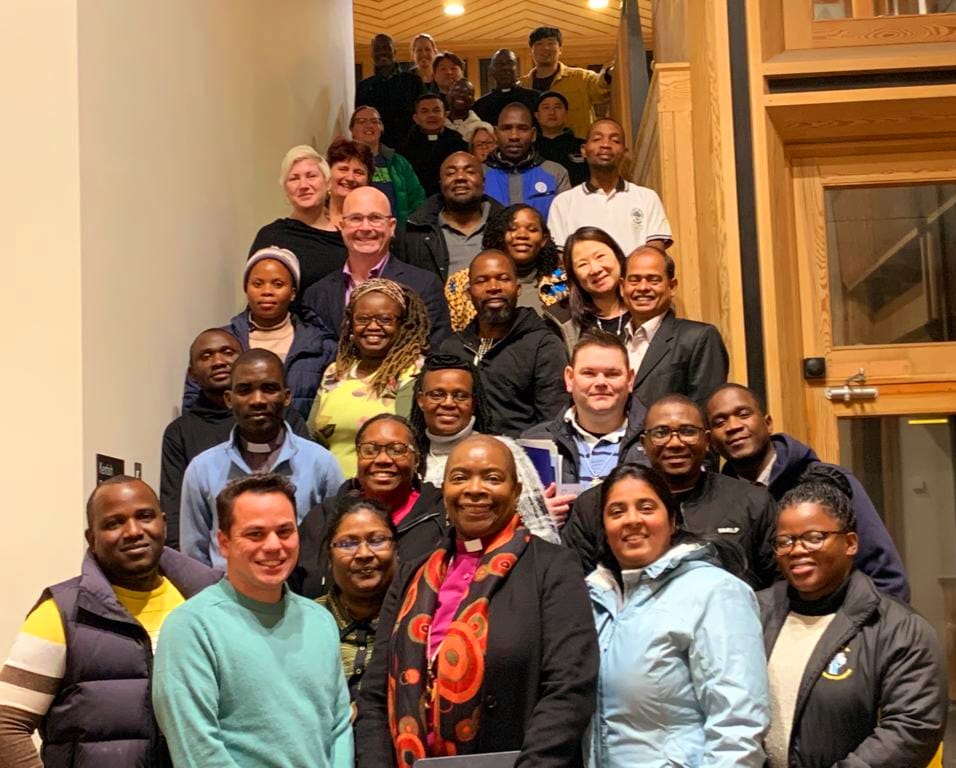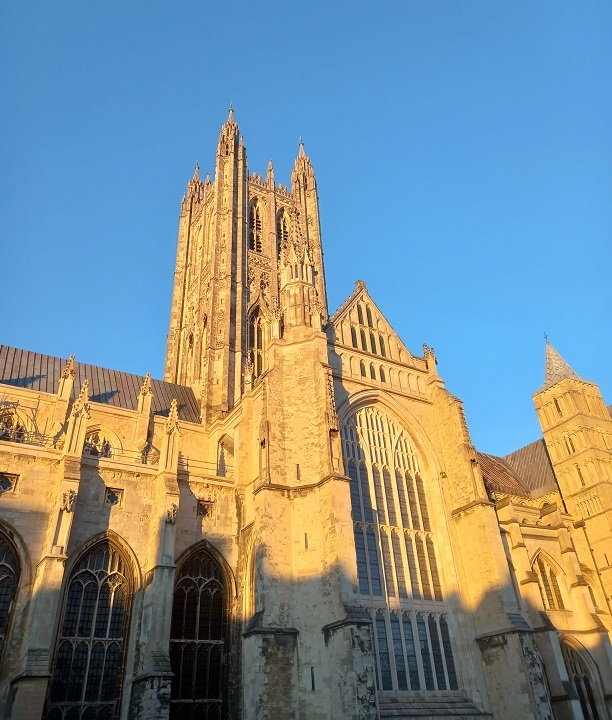Second year Mixed Mode ordinand Ross Stirling-Young contributes this powerful tale from his recent pilgrimage down south.
I write this article whilst waiting to board my ‘plane home, knowing that as I travel to Scotland, I will have by far the most straightforward return journey compared to those of my fellow seminarians. For some of the group, returning home doesn’t just include international travel; several face arduous journeys as heavy rains and storms have caused significant destruction to their countries’ infrastructure whilst they have been in the UK, and this as a direct effect of climate change.
Attending the Canterbury Cathedral Seminarian Conference over these past two weeks has been a rich and rewarding experience, one which will undoubtedly impact positively upon my formation and ministry. The Conference enabled me to share in discussions through daily Bible Study and small cell group meetings, and to bond together in worship and fellowship. Countries represented amongst the cohort of seminarians and clergy in their early years of ministry comprised the following: Australia, Bangladesh, Canada, Colombia, Eswatini, India, Kenya, Malawi, Mozambique, New Zealand, Scotland, South Africa, South Korea, St. Vincent, Tanzania, Zambia, and Zimbabwe.
As well as attending Canterbury Cathedral each day for Mattins, Eucharist and Evensong, we also visited several locations linked with either St Augustine or the Anglican Communion, including the Anglican Communion Office, Lambeth Palace, Westminster Abbey, Ebbsfleet, Minster Abbey, St Martin’s and St. Augustine’s Abbey. The highlight of the Conference was learning from one another’s cultural contexts, enabling a deeper understanding of the challenges, opportunities and cultural differences faced by those offering ministry in diverse parts of the Anglican Communion; for example, ministering in a local context where partaking in witchcraft is still prevalent, or where the role of females in society remains oppressed. The experience validated my belief in the importance of forging relationships globally, as that is one of the pivotal ways in which we can learn from one another, ensuring we support each other’s lives and ministry.

As a group (Ross is in the third row from the bottom, standing right holding a folder), we spent one day following the Church of England General Synod, particularly the debate on allowing blessings for same-sex couples. It was not easy to listen to some views from those amongst the group who held opposite beliefs to my own. However, it allowed for open and honest discussion in an environment in which I felt safe enough to speak. I openly shared with my peers my experience of same-sex marriage in the SEC and what it meant to my husband and me to be recognised in the house of God in 2018 after fifteen years of faithful and loving commitment to one another.
I also had the rare opportunity to attend the Ordination and Consecration of The Reverend Dr Martin Gainsborough to be Bishop of Kingston, The Venerable Dr Jane Mainwaring to be Bishop of Hertford, and The Reverend Dr Robert Munro to be Bishop of Ebbsfleet. The consecrations sparked some controversies, as detailed on Canterbury Cathedrals’ social media page as below, illustrating the challenges and differences faced at many different levels in the CofE:
The new bishops of Hertford and Kingston were ordained, along with the new PEV bishop of Ebbsfleet, who is to be a bishop for those churches who do not think women should hold leadership and significant teaching roles in churches. At the point of their consecration, the bishops of Kingston and Hertford, one man and one woman, were surrounded by all the bishops present, to join in laying hands on them – though a few bishops did not lay hands on the Bishop of Hertford, the woman. When it came to the new bishop of Ebbsfleet, the Bishop of London (Bishop Sarah), the most senior bishop there after the Archbishop of Canterbury, and one of the three chief consecrators, stepped back so that she did not lay hands on him. Both she and the third principal consecrating bishop were replaced by two others no other bishops, either male or female, shared in that moment of consecration.
I ended my time at Canterbury on a positive note by attending a local congregation in the Benefice of St Dunstan, St Mildred, and St Peter in Canterbury. I joined with local parishioners at their monthly Open Table service, where the Revd Dr Charlie Bell preached on the theme of ‘journey’ following the news from General Synod. Not only was this a place that demonstrated an accepting and loving community, but I felt Jesus in our midst as people with deep sorrow came together to support one another.
Overall, I believe I’ve returned from this Conference as a better, more informed person, understanding what it truly means to be part of the Anglican Communion which has distinctly different Provinces but remains a global family. My prayer is that whatever differences we may have, these will not drive us apart. Instead, Jesus will bind us together to learn and to grow, to accept and to love.
Lastly, I’m incredibly grateful and indebted to SEI, the St James Fund, the Diocese of St Andrews, Dunkeld and Dunblane, and the Central Fife Centre of Mission for supporting me in achieving this scholarship.
Photographs courtesy of Ross Stirling-Young
and the Revd Cathrine Fungai Ngangira


